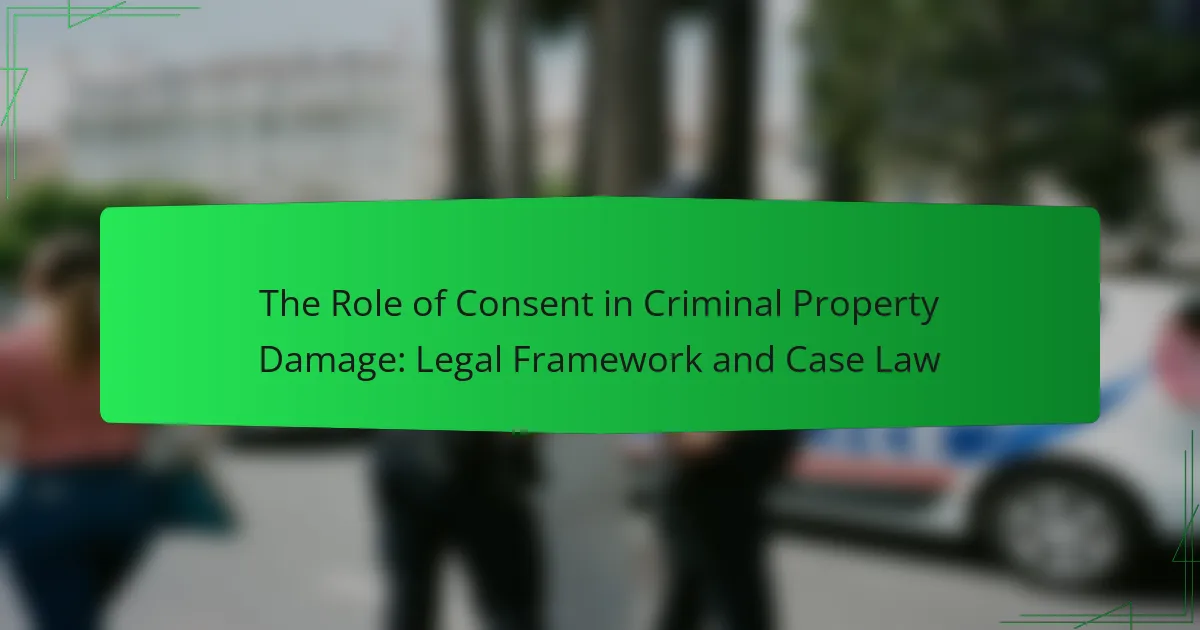Consent is a crucial legal concept that determines liability in cases of criminal property damage. When a property owner provides informed and voluntary consent for an action, it may absolve the individual from criminal responsibility for resulting damage. Legal precedents, such as *Mohr v. Williams* and *Rogers v. Board of Education*, highlight the importance of […]
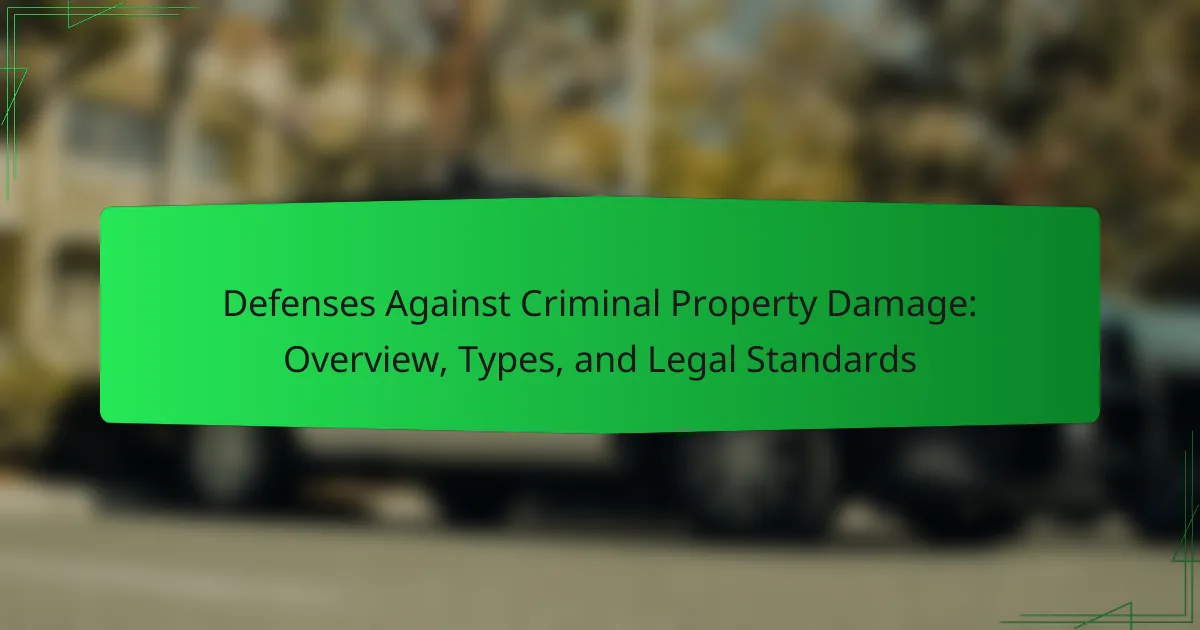
Defenses Against Criminal Property Damage: Overview, Types, and Legal Standards
Defenses against criminal property damage include necessity, consent, and self-defense, which provide legal justifications for actions taken to protect oneself or prevent greater harm. The necessity defense allows for property damage to avert more significant threats, while consent negates liability when the property owner agrees to the damage. Self-defense applies when damage is necessary to […]
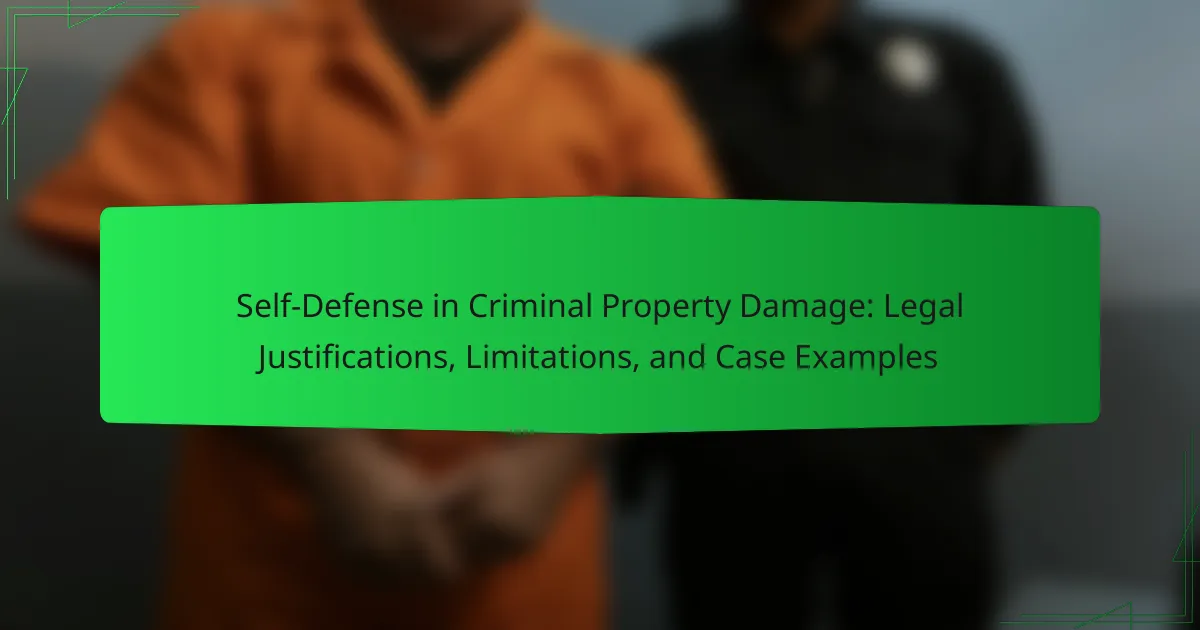
Self-Defense in Criminal Property Damage: Legal Justifications, Limitations, and Case Examples
Self-defense in the context of criminal property damage is a legal justification that allows individuals to use force to protect their property from imminent harm. This concept emphasizes that the force applied must be proportional to the perceived threat, with laws varying by jurisdiction regarding what constitutes reasonable force. Legal standards typically require individuals to […]
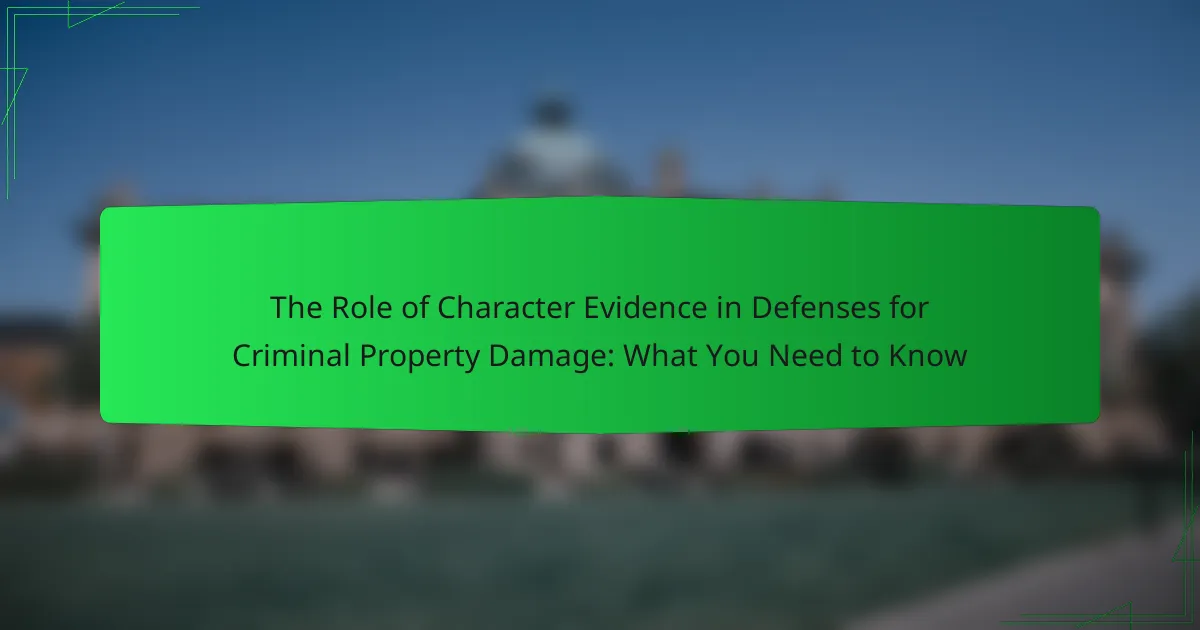
The Role of Character Evidence in Defenses for Criminal Property Damage: What You Need to Know
Character evidence is a critical element in the defense strategies for criminal property damage cases. It serves to establish a defendant’s tendency toward non-violent behavior, which can suggest an unlikelihood of committing property damage. This type of evidence can counter claims of intent or malice, bolstering arguments such as self-defense through a history of good […]
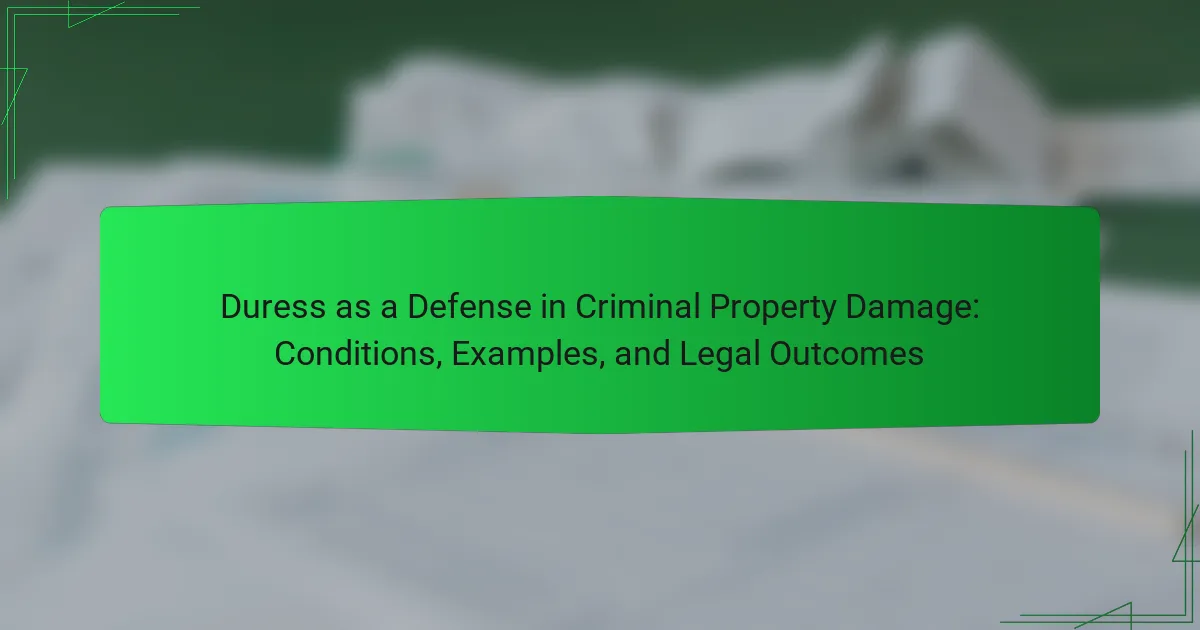
Duress as a Defense in Criminal Property Damage: Conditions, Examples, and Legal Outcomes
Duress is a legal defense used in criminal property damage cases where an individual commits an unlawful act due to an immediate threat of harm or death. This defense requires the presence of a credible and imminent threat that leaves no reasonable alternative for the individual. Various forms of duress, such as threats of physical […]
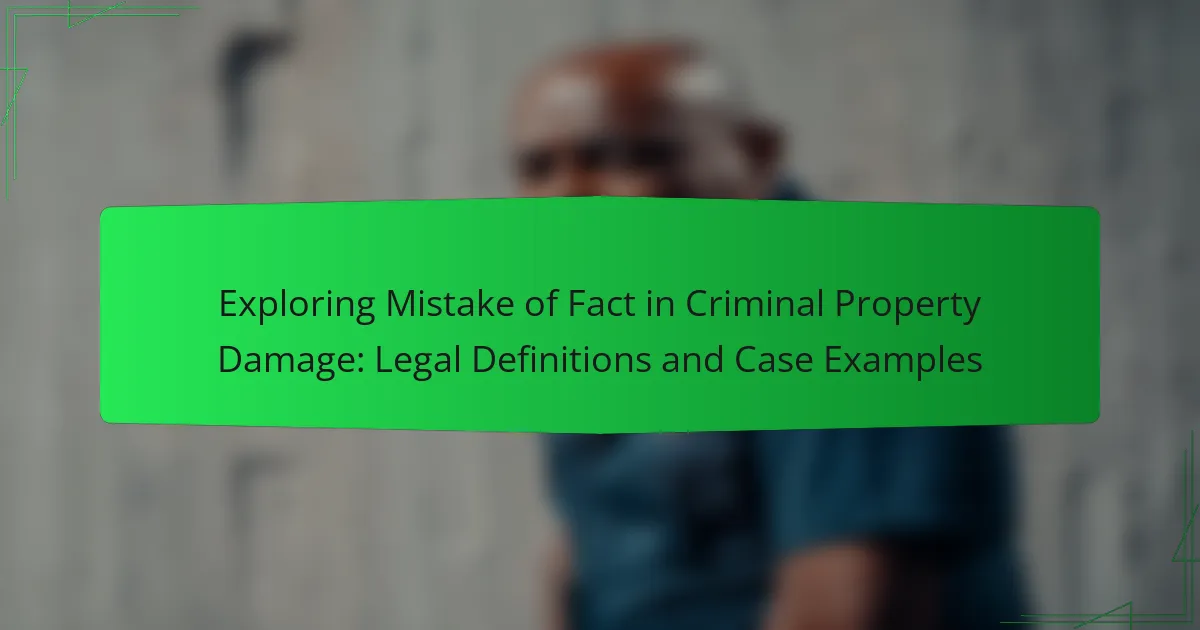
Exploring Mistake of Fact in Criminal Property Damage: Legal Definitions and Case Examples
Mistake of fact in criminal property damage refers to a misunderstanding of a factual circumstance that negates the criminal intent to damage property. This legal concept asserts that if an individual mistakenly believes they have permission to damage property, they may not be held criminally liable. The article explores the legal standards surrounding this concept, […]
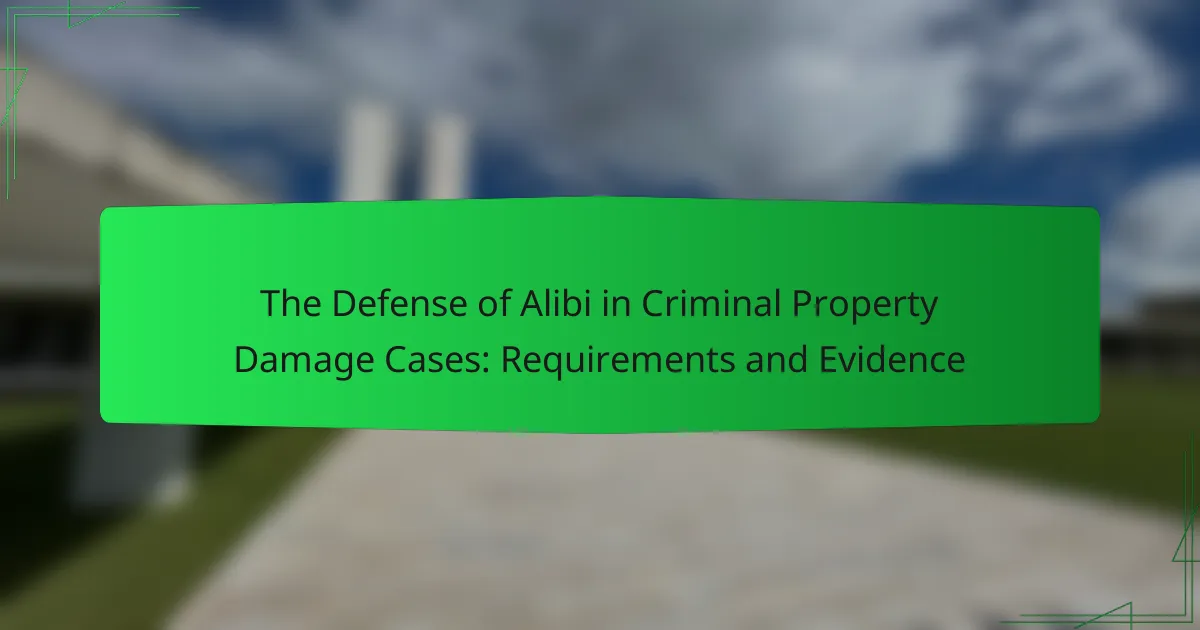
The Defense of Alibi in Criminal Property Damage Cases: Requirements and Evidence
The defense of alibi in criminal property damage cases asserts that the defendant was not present at the crime scene during the incident. This legal strategy requires the defendant to provide credible evidence, such as witness testimonies, video footage, or time-stamped receipts, to establish their location at the time of the alleged crime. Courts assess […]
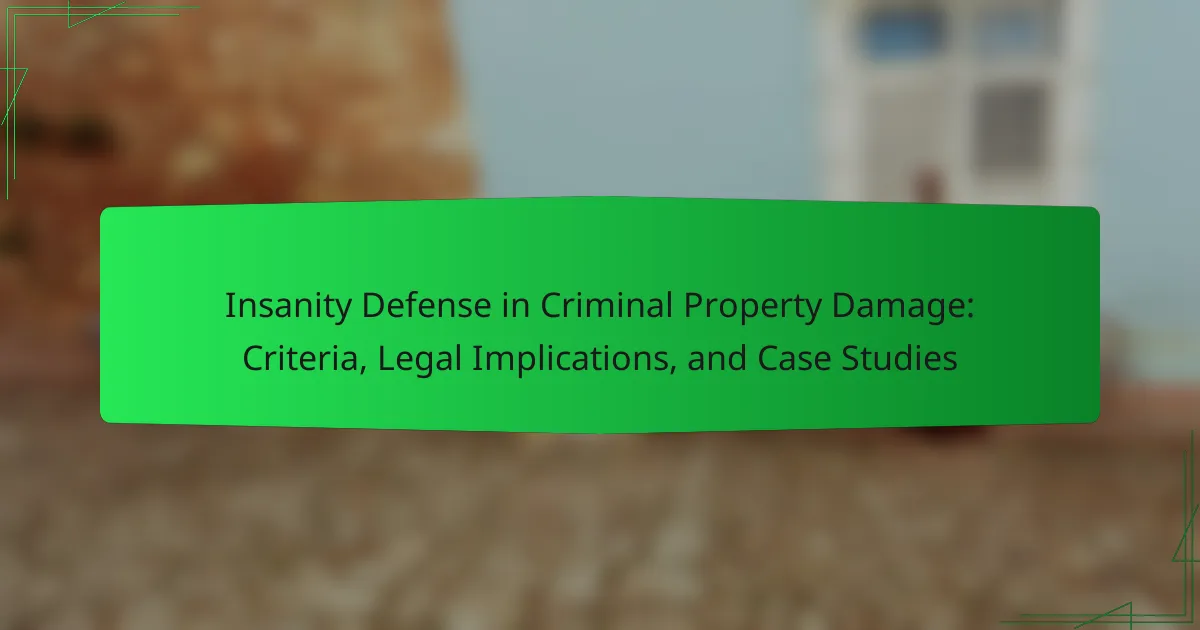
Insanity Defense in Criminal Property Damage: Criteria, Legal Implications, and Case Studies
The insanity defense in criminal property damage is a legal argument asserting that a defendant, due to a diagnosed mental illness, was unable to comprehend the nature of their actions or distinguish right from wrong at the time of the offense. This defense requires substantial evidence, often including expert psychological assessments, to support claims of […]
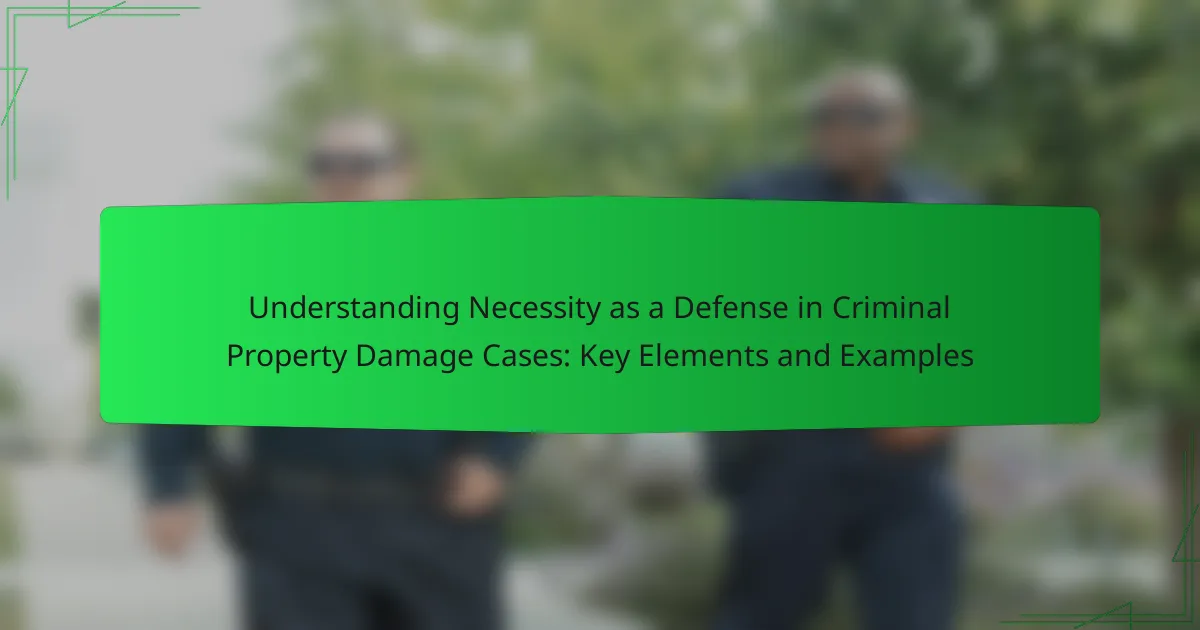
Understanding Necessity as a Defense in Criminal Property Damage Cases: Key Elements and Examples
Necessity as a defense in criminal property damage cases is a legal justification for actions taken to avert greater harm. This defense posits that a defendant may damage property to prevent an imminent and significant threat, with the harm avoided being greater than the harm caused. Courts assess the reasonableness of the defendant’s belief in […]
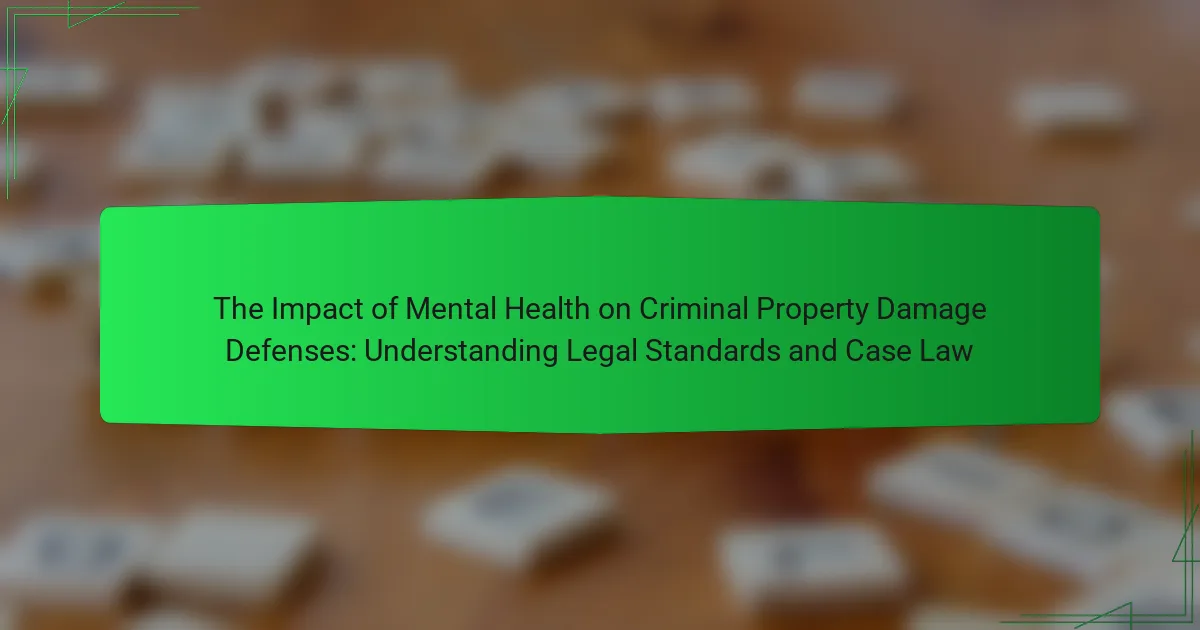
The Impact of Mental Health on Criminal Property Damage Defenses: Understanding Legal Standards and Case Law
Mental health significantly influences criminal property damage defenses, particularly for individuals with mental health disorders who may not fully comprehend their actions. Legal standards mandate proof of a mental disorder to support defenses such as insanity or diminished capacity, often relying on expert testimony to assess the defendant’s mental state during the offense. A key […]
